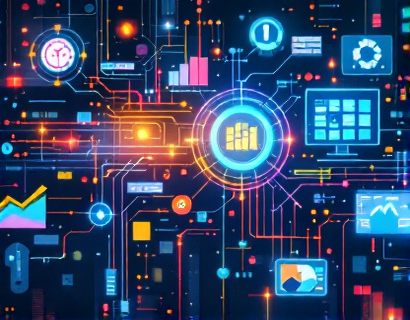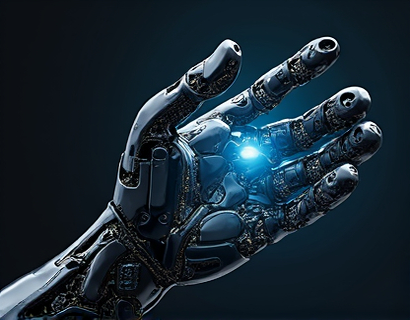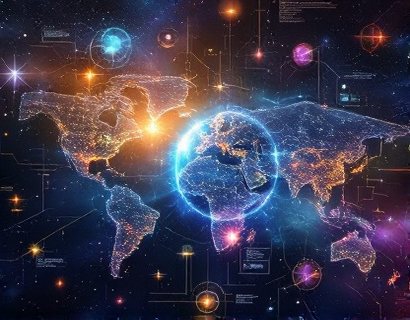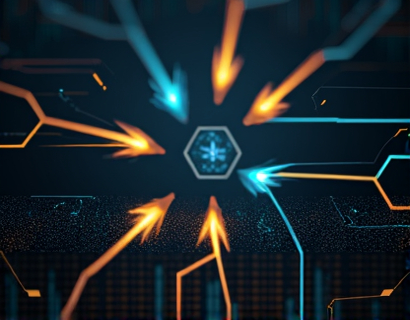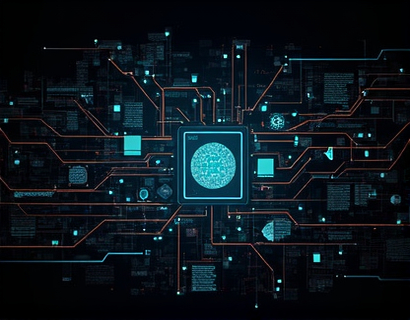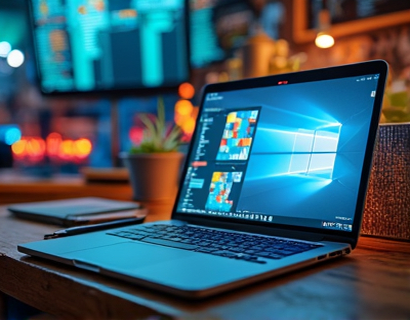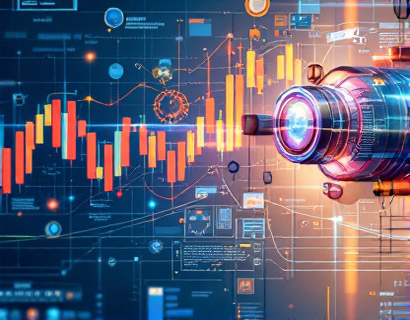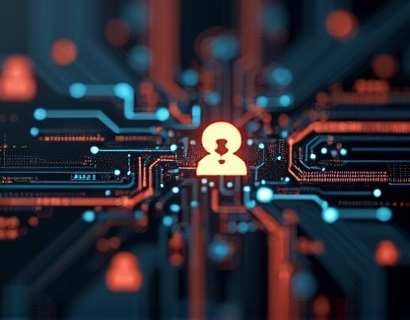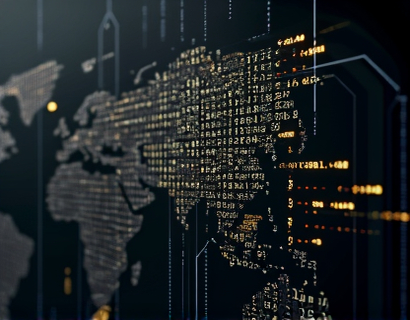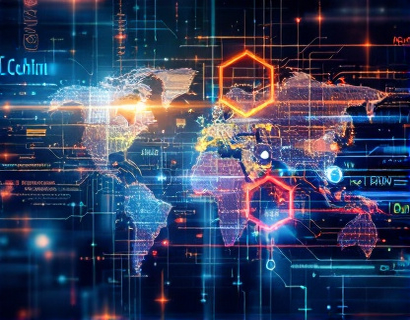AI and Crypto: Revolutionizing Digital Engagement for Enhanced User Experiences in the Crypto Tech Nexus
The intersection of artificial intelligence (AI) and cryptocurrency is a rapidly evolving space that promises to redefine digital engagement and user experiences. This article delves into the transformative power of these two technologies when combined, offering insights into how they are reshaping the crypto tech landscape. For tech enthusiasts, digital innovators, and early adopters, understanding the synergy between AI and crypto is crucial for staying ahead in the digital world.
The integration of AI in the crypto space is not just about enhancing existing functionalities but about creating entirely new paradigms of interaction and engagement. AI technologies, such as machine learning, natural language processing, and predictive analytics, are being leveraged to build smarter, more intuitive, and user-friendly crypto applications and platforms. This fusion is leading to more seamless and personalized user experiences, unlocking new opportunities for both users and developers.
Enhancing User Interactions with AI
One of the most significant impacts of AI in the crypto space is the enhancement of user interactions. Traditional crypto platforms often suffer from complex interfaces and cumbersome processes, deterring potential users. AI-driven solutions are streamlining these experiences by automating routine tasks, providing real-time insights, and offering personalized recommendations.
For instance, chatbots powered by natural language processing (NLP) are becoming common in crypto exchanges and wallet applications. These chatbots can handle customer support, answer frequently asked questions, and guide users through complex transactions, all in a conversational manner. This not only improves user satisfaction but also reduces the workload on human support teams, making the service more efficient and cost-effective.
Moreover, AI algorithms can analyze user behavior and preferences to offer tailored experiences. By understanding user patterns, these algorithms can suggest optimal trading strategies, highlight potential investment opportunities, and even predict market trends. This level of personalization is a game-changer, making crypto more accessible and user-friendly for a broader audience.
Security and Fraud Detection
Security is a paramount concern in the crypto world, and AI plays a crucial role in enhancing it. Traditional methods of detecting fraud and anomalies are often reactive and insufficient against sophisticated cyber threats. AI, with its ability to process vast amounts of data in real-time, offers a proactive approach to security.
Machine learning models can be trained to identify unusual patterns and behaviors that may indicate fraudulent activity. These models continuously learn and adapt, improving their accuracy over time. For example, AI can monitor transaction patterns, detect suspicious activities, and flag potential security breaches before they cause significant damage. This not only protects users but also builds trust in crypto platforms.
Additionally, AI can enhance the security of crypto wallets and exchanges by implementing advanced biometric authentication methods, such as facial recognition and voice recognition. These technologies provide a higher level of security compared to traditional password-based systems, reducing the risk of unauthorized access.
Decentralized Applications and AI
The rise of decentralized applications (dApps) is another area where AI and crypto converge to create innovative solutions. dApps, built on blockchain technology, offer decentralized alternatives to traditional centralized applications. AI can significantly enhance the functionality and user experience of these dApps.
For example, AI can be used to optimize smart contracts, ensuring they execute efficiently and securely. By analyzing historical data and current conditions, AI can suggest improvements to smart contract code, reducing the risk of bugs and vulnerabilities. This not only enhances the reliability of dApps but also increases user confidence in using them.
Furthermore, AI-driven analytics can provide valuable insights into user interactions within dApps. By understanding how users engage with these applications, developers can make data-driven decisions to improve features and user interfaces. This continuous feedback loop leads to more robust and user-centric dApps, fostering greater adoption and usage.
Market Prediction and Trading Bots
One of the most exciting applications of AI in the crypto space is in market prediction and automated trading. AI algorithms can analyze vast amounts of market data, including historical prices, trading volumes, news sentiment, and social media trends, to make informed predictions about future price movements.
Trading bots powered by AI can execute trades based on these predictions, operating 24/7 without human intervention. These bots can adapt to changing market conditions, adjusting their strategies in real-time to maximize profits. For retail investors, this means access to professional-level trading tools and strategies, leveling the playing field in the crypto market.
Moreover, AI can help in risk management by identifying potential market downturns and suggesting hedging strategies. By continuously monitoring market indicators, these systems can alert users to take preventive actions, protecting their investments from significant losses.
Enhancing Cryptocurrency Wallets
Cryptocurrency wallets are the gateways to the crypto world, and AI is transforming them into more secure and user-friendly tools. AI-powered wallets can offer advanced features such as automatic backup and recovery, enhanced encryption, and real-time transaction monitoring.
For instance, AI can analyze user behavior to detect unusual activities and alert users to potential security threats. It can also suggest best practices for wallet management, such as regular backups and updating security protocols. Additionally, AI-driven wallets can simplify the process of managing multiple cryptocurrencies by automatically converting between different tokens and providing real-time exchange rates.
Another innovative feature is the integration of AI-based financial advisors within wallets. These advisors can provide personalized investment recommendations based on the user's risk tolerance, investment goals, and market conditions. This level of personalized guidance can help users make more informed decisions, enhancing their overall crypto experience.
Challenges and Considerations
While the integration of AI and crypto offers numerous benefits, it also comes with its own set of challenges and considerations. One of the primary concerns is the regulatory landscape. As AI and crypto continue to evolve, regulators are grappling with how to oversee these technologies to prevent misuse and ensure consumer protection.
Another challenge is the technical complexity involved in integrating AI with existing crypto systems. Developers need to possess a deep understanding of both AI and blockchain technologies to create seamless and secure solutions. This requires significant investment in research and development, as well as skilled personnel.
Moreover, there is the issue of data privacy. AI systems rely on vast amounts of data to function effectively, raising concerns about how this data is collected, stored, and used. Ensuring compliance with data protection regulations and maintaining user trust is crucial for the successful adoption of AI in the crypto space.
Future Prospects
The future of AI and crypto is bright, with numerous potential developments on the horizon. As AI technologies continue to advance, we can expect even more sophisticated applications in the crypto domain. For instance, the integration of AI with quantum computing could lead to breakthroughs in cryptography, making crypto systems virtually unhackable.
Additionally, the rise of Web3 and the metaverse presents new opportunities for AI and crypto to collaborate. In this decentralized internet, AI can enhance user experiences by creating more immersive and interactive environments. From virtual asset management to AI-driven NFT marketplaces, the possibilities are vast.
In conclusion, the synergy between AI and crypto is revolutionizing digital engagement, offering enhanced user experiences and unlocking new opportunities. For those interested in the intersection of these technologies, staying informed and adaptable will be key to thriving in the evolving crypto tech landscape.



